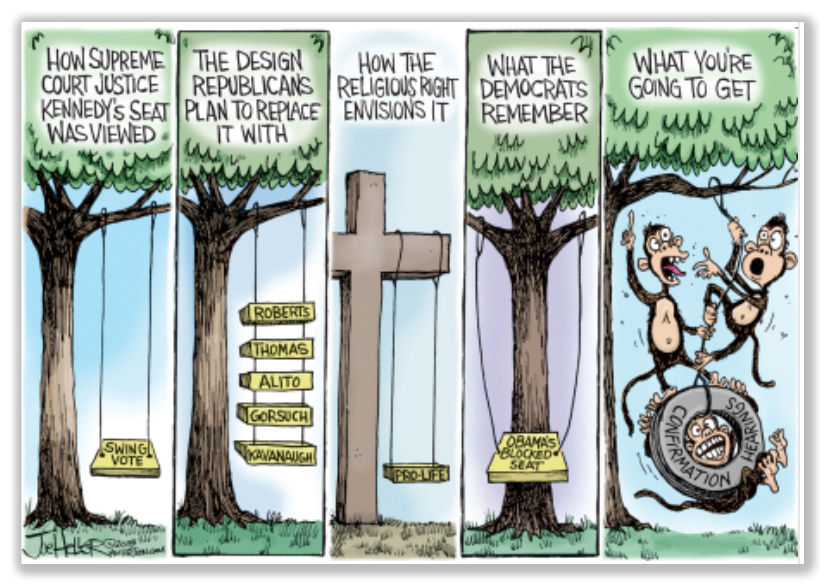We post news and comment on federal criminal justice issues, focused primarily on trial and post-conviction matters, legislative initiatives, and sentencing issues.

FIRST STEP ACT STANDING STILL
It’s no surprise to anyone that the Senate’s version of the FIRST STEP Act, which reportedly will be amended to include some mandatory minimum sentence patches contained in the Senate Reform and Corrections Act of 2017, has been standing still since the White House deal brokered in late August.
 Recall that the White House convinced warring Republicans, led by Sen. Charles Grassley (R-Iowa), chairman of the Senate Judiciary Committee, to accept FIRST STEP as the vehicle to push prison and sentence reform through Congress. The irony was that Sen. Grassley and others did not think that FIRST STEP gave inmates too much. Instead, they complained that FIRST STEP gave inmates too little, because they see reform of drug mandatory minimums, Fair Sentencing Act retroactivity, and unstacking multiple 18 USC 924(c) sentences as essential.
Recall that the White House convinced warring Republicans, led by Sen. Charles Grassley (R-Iowa), chairman of the Senate Judiciary Committee, to accept FIRST STEP as the vehicle to push prison and sentence reform through Congress. The irony was that Sen. Grassley and others did not think that FIRST STEP gave inmates too much. Instead, they complained that FIRST STEP gave inmates too little, because they see reform of drug mandatory minimums, Fair Sentencing Act retroactivity, and unstacking multiple 18 USC 924(c) sentences as essential.
Senate Majority Leader Mitch McConnell (R-Kentucky) fecklessly announced a month ago that he would not bring FIRST STEP to a floor vote until after the November mid-term elections, because he did not want to put Republican senators running for re-election in the position of having to take a stand on prison or sentencing reform. It hardly seems to be fraught with electoral peril: a recent University of Maryland poll found that over 70% of Americans favor reducing drug mandatory minimums and making the change retroactive.
The Brett Kavanaugh nomination fight could affect the chances of FIRST STEP passage, but what is going on in the nomination process is so unprecedented that no one can assess what that change will be. After one of the most bitter Senate battles in modern history, both parties might be eager to show the nation that the Senate can pass a measure with bipartisan support. As one commentator noted about the FIRST STEP Act last week, “The prison population is a lot smaller than the entirety of the American people and the ‘everyone wants this’ rationale doesn’t always work. In this case, however, bipartisanship is the truth.”
 On the other hand, the Republicans could be too bitter over Kavanaugh or even suffer a loss of the Senate. Right now, the Real Clear Politics poll predicts 47 solid Republican seats, 44 solid Democrat seats, and nine that are too close to call. It is entirely possible that the November election will cause Sen. McConnell to use the remaining few weeks of the 115th Congress to do things he will not be able to do in 2019. If that is the case, the FIRST STEP Act could become a casualty of political forces that have nothing to do with animosity toward federal inmates.
On the other hand, the Republicans could be too bitter over Kavanaugh or even suffer a loss of the Senate. Right now, the Real Clear Politics poll predicts 47 solid Republican seats, 44 solid Democrat seats, and nine that are too close to call. It is entirely possible that the November election will cause Sen. McConnell to use the remaining few weeks of the 115th Congress to do things he will not be able to do in 2019. If that is the case, the FIRST STEP Act could become a casualty of political forces that have nothing to do with animosity toward federal inmates.
Last week, BOP inmate and former Illinois Governor Rod Blagojevich published a commentary in the Washington Examiner supporting prison reform, arguing that the government’s 97% conviction rate are strong arguments for reform. He wrote, “shouldn’t that fact raise an alarm bell to all freedom loving people? Michael Jordan, as great as he was, only made half the shots he attempted. And knowing what I now know through my experience, this almost perfect success rate is convincing proof that the federal criminal justice system works against the accused. It is neither a place to expect a fair trial nor is it a place where the promise of justice for all is a promise kept.”
Although you can be sure that there are good practical reasons for Congress to pass FIRST STEP, there is no guarantee that it will Another thing you can be sure of is that very little about the FIRST STEP Act will be heard in the next five weeks.
Civilcandor.com, Sentencing Reform Bills Won’t Help the Guilty by Accusation (Sept. 29, 2018)
Real Clear Politics, Election 2018 – Senate (Sept. 30, 2018)
fiWashington Examiner, Rod Blagojevich: My plea for prison reform (Sept. 28, 2018)
– Thomas L. Root





